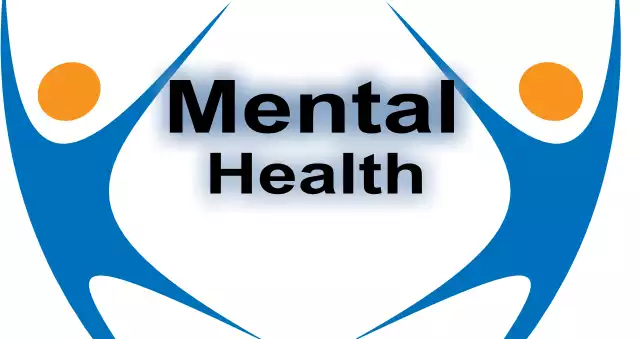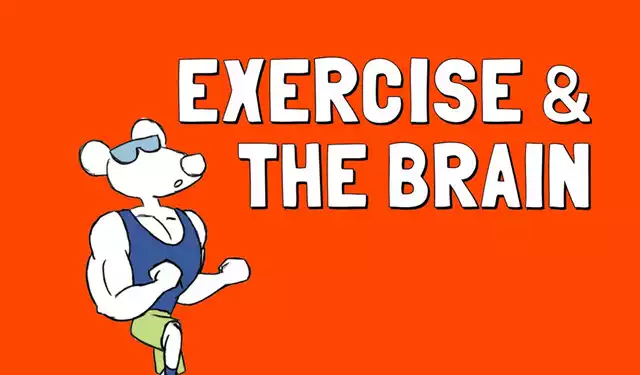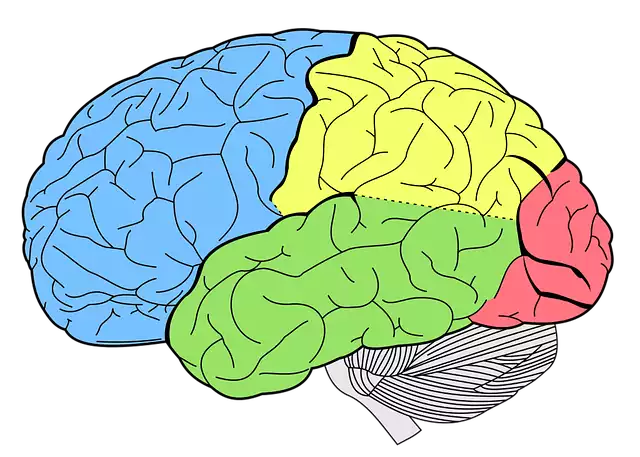Brain Exercise Mental Health
Imagine if there were a workout regimen that didn’t just tone your muscles but also sharpened your mind, elevated your mood, and fortified your mental resilience.
Welcome to the world of brain exercise—a burgeoning field that is proving to be a game-changer in mental health.
In an era where stress and cognitive overload have become commonplace, brain exercise offers a beacon of hope, promising not just relief but enhancement of our mental faculties.
From crossword puzzles to complex strategy games, from mindfulness meditation to learning a new language—these activities do more than pass the time; they sculpt our cognitive architecture.
Emerging research shows that engaging in regular brain exercises can significantly reduce symptoms of anxiety and depression, improve memory and focus, and even delay the onset of neurodegenerative diseases like Alzheimer’s.
So why settle for just physical fitness when you can achieve holistic well-being? Dive into this article to discover how you can start incorporating Brain Exercise Mental Health into your daily routine for optimal mental health.
In today’s fast-paced and technology-driven world, mental health has become a growing concern.
With the constant bombardment of information and the pressure to constantly perform, it is no wonder that many individuals struggle with maintaining a healthy mind.
While traditional methods of therapy and medication are effective for some, others are seeking alternative ways to improve their mental well-being by utilizing Brain Excercise Mental Health.
One such approach is through brain exercise.
Often overlooked, the brain is a vital part of our overall health and should be treated as such.
Research has shown that specific exercises and activities can help improve cognitive function, reduce symptoms of anxiety and depression, and even prevent or delay the onset of neurodegenerative diseases.
This article will delve into the world of brain exercise and its impact on mental health.
We will explore various techniques, their benefits, and how they can be incorporated into our daily lives.
Whether you are looking to boost your concentration, alleviate stress, or simply maintain a healthy brain, this article aims to provide valuable insights and resources to help you achieve your mental health goals.
Table of Contents Brain Exercise Mental Health
Importance of brain exercise for mental health
Engaging in regular brain exercises is crucial for maintaining optimal mental health.
Just as physical exercise strengthens and improves the body, cognitive activities stimulate and enhance brain function.
Research consistently shows that individuals who actively challenge their brains through activities such as puzzles, learning new skills, and problem-solving have a lower risk of cognitive decline and are more likely to maintain mental sharpness as they age.
Brain exercises not only help to enhance memory, attention, and concentration but also promote the development of new neural connections, improving overall cognitive functioning.
By incorporating brain exercises into our daily routines, we can proactively support our mental well-being and promote long-term brain health.
How brain exercise improves cognition
Regular engagement in brain exercises has been shown to significantly improve cognition.
When we challenge our brains through activities such as puzzles, strategic games, and learning new skills, we activate various cognitive processes that enhance our overall mental abilities.
These exercises stimulate the brain’s neural pathways, promoting the development of new connections and strengthening existing ones.
As a result, our memory, attention, and problem-solving skills are enhanced, leading to improved cognitive function.
By incorporating brain exercises into our daily routines, we can effectively boost our cognitive abilities and maintain optimal mental agility.
Incorporating physical activity in brain exercises
Engaging in physical activity alongside brain exercises can further amplify the cognitive benefits.
Studies have shown that incorporating physical movement, such as aerobic exercise or even brisk walking, can enhance brain function and promote mental well-being.
When we exercise, our heart rate increases, delivering a greater supply of oxygen and nutrients to the brain.
This increased blood flow stimulates the release of chemicals that support the growth of new neurons, particularly in the hippocampus – a vital region for memory and learning.
Moreover, physical activity has been linked to the production of endorphins, which are natural mood-enhancing chemicals that can alleviate stress and improve overall mental health.
By combining physical activity with brain exercises, we can optimize our cognitive abilities while simultaneously promoting our mental well-being.
Boosting memory with brain exercises
Implementing a consistent routine of brain exercises can significantly contribute to boosting memory and overall cognitive function.
These exercises, specifically designed to stimulate the brain and challenge its capabilities, can enhance neural connections and improve memory recall.
For example, activities such as puzzles, memory games, and learning new skills or languages can activate different regions of the brain, promoting neuroplasticity and strengthening memory pathways.
Regular engagement in these exercises can also help prevent cognitive decline and age-related memory loss.
By dedicating time to brain exercises, individuals can harness the full potential of their cognitive abilities and maintain optimal mental health.
Brain exercises for stress management
Implementing a consistent routine of cognitive activities can not only enhance memory and cognitive function but also serve as effective stress management tools.
Engaging in mindfulness exercises, such as meditation or deep breathing techniques, can help regulate stress levels and promote relaxation.
Additionally, practicing cognitive-behavioral exercises, such as journaling or problem-solving, can equip individuals with the skills to identify and manage stress triggers effectively.
Moreover, engaging in physical activities like yoga or tai chi can not only improve cognitive functioning but also alleviate stress and promote overall mental well-being.
By incorporating these brain exercises into daily routines, individuals can proactively manage stress and maintain a balanced state of mental health.
Enhancing focus and concentration through brain exercises
Regularly engaging in brain exercises can have a significant impact on enhancing focus and concentration.
These exercises involve challenging the brain through various activities that stimulate cognitive function.
For instance, tasks like puzzles, crosswords, and Sudoku can help improve problem-solving skills and attention span.
Additionally, activities such as reading, playing musical instruments, or learning a new language can enhance memory retention and improve concentration abilities.
By incorporating these brain exercises into a regular routine, individuals can sharpen their focus and concentration, leading to increased productivity and overall mental acuity.
Benefits of brain exercises for overall well-being
Engaging in brain exercises goes beyond improving focus and concentration; it also provides numerous benefits for overall well-being.
Research has shown that regularly challenging the brain through cognitive activities can help reduce the risk of cognitive decline and age-related disorders such as Alzheimer’s disease.
These exercises promote neuroplasticity, the brain’s ability to reorganize and form new neural connections, which is crucial for maintaining cognitive function as we age.
Moreover, brain exercises have been linked to improved mood and reduced stress levels.
By stimulating the brain and promoting the release of endorphins, these activities can enhance mental well-being and provide a sense of accomplishment.
Incorporating brain exercises into a daily routine can contribute to a healthier, more balanced lifestyle, supporting not only cognitive health but also emotional and psychological well-being.
Simple brain exercises for beginners
As individuals embark on their journey to improve cognitive function, incorporating simple brain exercises can be a great starting point for beginners.
One effective exercise is word association, where individuals connect words based on similarities or categories.
This exercise stimulates creative thinking and enhances verbal skills.
Another exercise is Sudoku, a number-based puzzle that requires logical reasoning and problem-solving abilities.
Additionally, jigsaw puzzles offer a visual challenge that improves spatial awareness and cognitive flexibility.
Mindfulness meditation, focusing on the present moment, can also enhance attention and concentration.
These simple brain exercises provide a foundation for beginners to begin sharpening their cognitive skills and promoting mental well-being.
In conclusion, incorporating brain exercises into our daily routines can have a positive impact on our mental health.
By engaging in activities that challenge our cognitive abilities, we can improve our memory, focus, and overall brain function.
It is important to remember that just like physical exercise, consistency is key when it comes to brain exercises.
So let us prioritize our mental health and make brain exercises a part of our self-care routine.
With dedication and practice, we can strengthen our minds and promote a healthier lifestyle.
As always, it is recommended to consult with a medical professional for personalized advice on how to incorporate brain exercises into our daily lives.
Let’s start exercising our brains and take a step towards a healthier mind.
FAQ
How does engaging in brain exercises, such as puzzles or memory games, impact mental health?
Engaging in brain exercises like puzzles or memory games can help improve cognitive functions, enhance memory retention, increase focus and concentration, and boost problem-solving skills.
These activities stimulate the brain, promote neuroplasticity, and may reduce the risk of cognitive decline with age.
In addition, the sense of accomplishment and satisfaction gained from solving puzzles can lead to reduced stress and improved overall mental well-being.
Regular participation in brain exercises can contribute to maintaining mental sharpness, enhancing mood, and potentially lowering the risk of developing conditions like dementia or Alzheimer’s disease.
Can brain exercises help prevent cognitive decline and improve overall brain function as we age?
Yes, engaging in brain exercises such as puzzles, memory games, and learning new skills can help prevent cognitive decline and improve overall brain function as we age.
These activities stimulate the brain, promote neuroplasticity, and can enhance cognitive abilities such as memory, focus, and problem-solving skills.
It is important to challenge the brain regularly to keep it sharp and maintain cognitive health throughout life.
What are some effective brain exercises that can be incorporated into a daily routine to support mental health?
Some effective brain exercises to support mental health include puzzles, reading, meditation, physical exercise, mindfulness practices, learning a new skill or language, and socializing.
These activities can help improve cognitive function, reduce stress, boost mood, and enhance overall mental well-being.
Integrating these exercises into a daily routine can promote mental resilience, improve focus, memory, and creativity, and contribute to a healthier mind.
Experimenting with different activities and finding what works best for you is key to maintaining a balanced and healthy mind.
Are there specific brain exercises that have been shown to be particularly beneficial for individuals struggling with anxiety or depression?
Yes, cognitive-behavioral therapy (CBT), mindfulness meditation, and aerobic exercise have been shown to be particularly beneficial for individuals struggling with anxiety or depression.
CBT helps individuals identify and challenge negative thought patterns, mindfulness meditation promotes present-moment awareness and acceptance, and aerobic exercise releases endorphins that improve mood and reduce stress.
These brain exercises have been proven effective in reducing symptoms of anxiety and depression by promoting positive cognitive and emotional changes.
How does regular mental stimulation through brain exercises contribute to overall emotional well-being and resilience?
Regular mental stimulation through brain exercises helps to improve cognitive function, memory, and problem-solving skills, which can contribute to increased self-confidence, reduced stress, and improved emotional well-being.
By challenging the brain with new tasks and activities, individuals can build resilience by enhancing their ability to adapt to and cope with difficult situations, ultimately leading to a more positive outlook on life and increased emotional stability.
Incorporating brain exercises into a routine can help individuals maintain mental sharpness, boost mood, and build a sense of accomplishment, all of which are vital components of emotional well-being and resilience.







